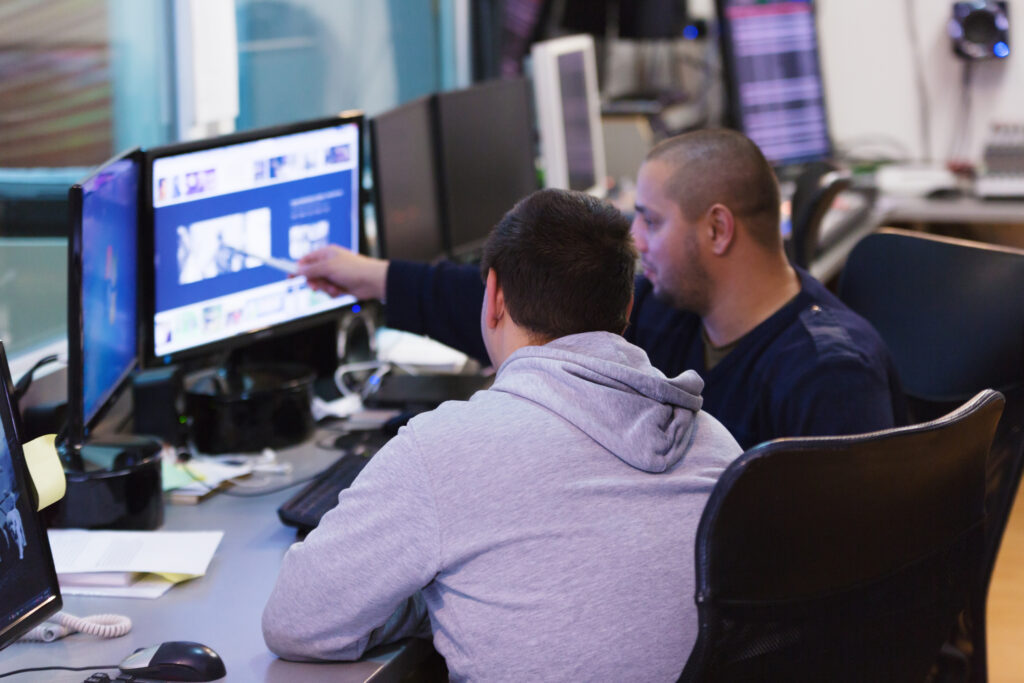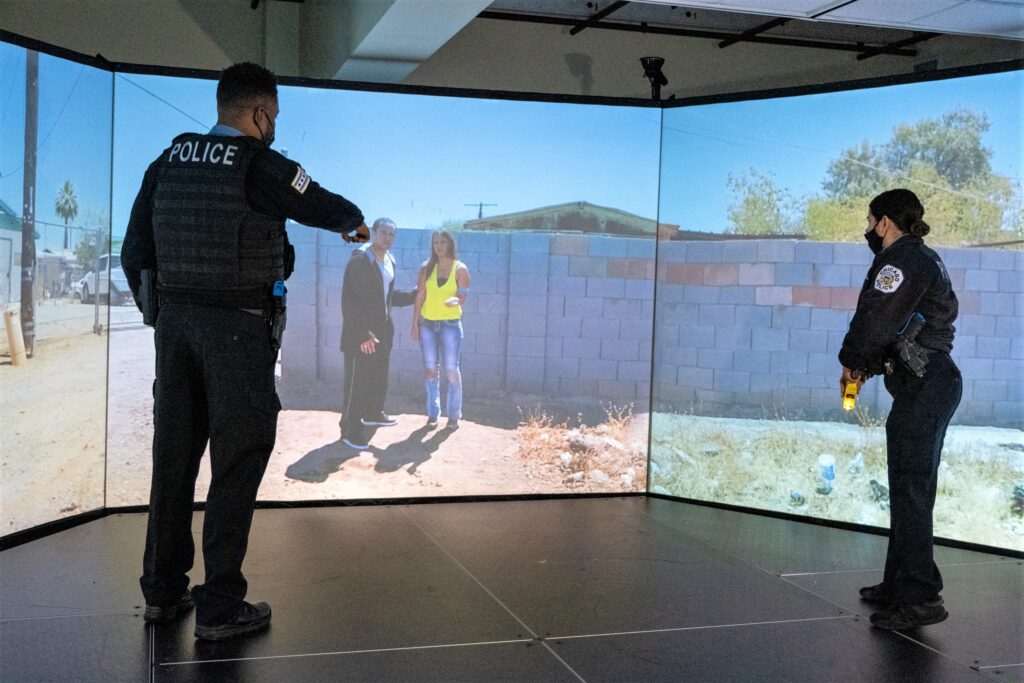Policing
If we want to address America’s gun violence epidemic and save lives today, fair and effective policing is essential. But for too many communities, we are failing to deliver that kind of policing.
While the homicide rate has decreased nationwide since its historic high in the 1990s, many of America’s most violent neighborhoods are experiencing higher rates of gun violence than ever before. This gun violence has exacerbated the safety gap in American cities and taken a devastating toll on communities of color. If we want to address America’s gun violence epidemic and save lives today, fair and effective policing is essential. But for too many communities, we are failing to deliver that kind of policing.
The Crime Lab works directly with police agencies and experts to evaluate interventions to improve officer training, strengthen department management, narrowly focus violence reduction efforts, and rebuild police-community relationships to make policing more fair and effective.
Our research found that when police department leadership changes, rates of violent crime and police use of force can drop at least 20-35% – proving that management matters.
Police officers who completed Sit-D, a training program designed and evaluated by the Crime Lab, engaged in 22% fewer uses of force for months after the training.
Policing Leadership Academy
The Policing Leadership Academy is designed to increase safety and fairness in America’s most violent neighborhoods.

Officer Support System (OSS)
The Crime Lab partnered with the Chicago Police Department (CPD) to develop the Officer Support System (OSS), a next-generation, data-driven early intervention system to promote officers’ long-term mental health and wellness.

Situational Decision-Making (Sit-D)
The Crime Lab and the Chicago Police Department (CPD) partnered to create and evaluate a behavioral science-informed training that helps improve officer decision-making in ambiguous, high-stress situations.

Workforce Allocation Analysis
The Workforce Allocation (WFA) Analysis examined where personnel resources at the Chicago Police Department are allocated to improve efficiency, equity, and transparency in patrol staffing.

NBER Working Paper: Predicting Police Misconduct
This paper outlines the results of research on over a decade of Chicago Police Department data that shows it is possible to predict risk of on-duty and off-duty misconduct, allowing police departments to prioritize training and supportive resources.

Webinar – Situational Decision-Making: A New Training to Improve Policing
The Crime Lab hosted a webinar on the findings of our recently released study, A Cognitive View of Policing, which evaluated a pilot of the Situational Decision-Making (Sit-D) police training program.

NBER Working Paper: A Cognitive View of Policing
Read the working paper published by the National Bureau of Economic Research.

NBER Working Paper: Body-Worn Cameras in Policing: Benefits and Costs
This working paper dives into what we know about the benefits of body worn cameras and how those benefits
compare to the costs of this new technology.
Latest Updates
Chicago’s Homicides Are Headed for Lowest Tally in 60 Years
Kim Smith, the Crime Lab’s Director of National Programs, speaks with Bloomberg’s Miranda Davis about the 2025 declines in violent crime in Chicago.

Chicago looks to close out 2025 with a 10-year low in violent crime
The Crime Lab’s experts and end-of-year analysis of Chicago crime trends are heavily featured in the latest Crain’s Forum on violence reduction.

The Best Books of 2025
The New Yorker includes Crime Lab Pritzker Director Jens Ludwig’s book, “Unforgiving Places: The Unexpected Origins of American Gun Violence,” on its annual list of best books of the year.

